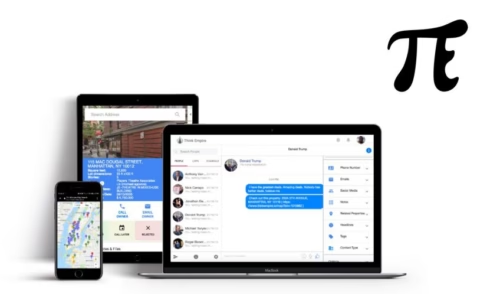Are you looking to hire expert data engineers?
This article will answer the most interesting questions about hiring the best data engineers.
Data is quickly becoming the most valuable resource in the world. Data engineering is the process of extracting that value from raw data. It takes a great team of data engineers to help a company make the most of its data to gain a competitive edge.
Hiring great data engineers is a difficult task. First, data engineering covers a broad range of skills, and it can be hard to determine which ones you need. You’ll also compete aggressively with other companies, trying to hire the same candidates.
But with the proper knowledge and careful planning, you can identify and hire the right candidates for your project requirements. Let’s get into how.
Who Needs to Hire Top Data Engineers?
Any company that wants to build custom software to extract insights from its data needs someone to handle that process. If you are reading this, then you are likely one of them.
Maybe you want insights into industry trends, customer buying patterns, how to cut marketing costs, inefficiencies in your business processes, weaknesses in your sales processes, how to improve your products, and even ways to keep your organization safer. Regardless of your goals, you will need a great data engineer to make it happen.
Hiring teams of data engineers and mining data this way was a luxury for the most prominent companies. Now, things have changed.
This guide is for:
- Startup founders and entrepreneurs are looking for new ways to leverage data for a competitive edge;
- Enterprise executives seeking insights from their data to help drive business decisions;
- Project and product managers who want to streamline processes and improve products using data-driven techniques.
The Difficulties With Finding Data Engineering Developers for Hire
As mentioned previously, data engineers are in high demand worldwide and, as a result, pull in top salaries, especially in the USA. If you want great data engineers to work for you, you must compete with other companies for their skills.
The hype around the field of data science is also a problem. The job demands a combination of technical prowess and an understanding of business strategy that few teams or individuals have. The prestige and big paychecks have attracted many less qualified developers.

Get a complimentary discovery call and a free ballpark estimate for your project
Trusted by 100x of startups and companies like
To put it bluntly, if you don’t know what you’re looking for, you could end up with a dud.
To make matters even more difficult, any great candidate you do find will almost certainly be getting offers from other companies. If your interview process takes too long, the great candidates might just go somewhere else.
There is a way around the stressful and lengthy hiring process, and that is to outsource your developers from a dedicated software development company like DevTeam.Space, which outsources its developers.
Our community of expert developers is already fully vetted, and all our developers work for us on a full-time basis. Additionally, we hold payments to our developers until you approve their work. This means your project is always in safe hands.
Assuming you want to know more about hiring developers, let's now continue.
What Separates Expert Data Engineers From the Rest?
With any software development, it’s tempting to go with the developers who ask for the lowest rate. However, cheaper developers are cheap because they usually have less experience and hard skills. Hiring them comes with all sorts of risks, and they may:
- Have a limited skill set
- Take far too long to do the required tasks
- Struggle to communicate effectively
- Try to cover up mistakes
- Make expensive mistakes that only reveal themselves later
- Struggle to solve problems unique to your business
- Not have the experience or insight to make helpful suggestions
- Be unable to work effectively in your team
- Lack of communication skills
- Take on too many projects at once due to a lack of experience and neglect your project as a result.
With data engineering developers, avoiding these issues is even more important. It’s easy to tell if your web developers have built a great website or not, but it is much more difficult to tell if the predictive models your data science team has put together are accurate and if you should use them to make business decisions. Dedicated experts won’t bring these problems. Avoid freelance data engineering developers like the plague!
Great data engineering developers and teams are special. They have an intuition about how your business operates, what valuable information might be hidden within your data, how to uncover that information, and how to present it in a way that’s most helpful to you.
Essential Data Engineering Developer Skills
Here are the key indicators you need to look for. Please keep in mind that this is a generalized list. The specific skills that you need will depend on your project requirements:
1. Math and statistics background
Math and statistics are at the core of data science. Strong math and statistical knowledge is an absolute must for any data developer.
Required skills include:
- Algebra and calculus
- Regression, linear regression
- Set theory
- Interval notation and algebra with inequalities
- Uses for summation and Sigma notation
- Exponents and logarithms
- Probability
- Numerical analysis, Bayes' Law, and Central Limit Theorem
- Predictive modeling.
These techniques are used to find patterns in data and to extend those patterns to form predictive models that you can use. However, your data engineers will be doing a lot more than math. Most of the real work your developers will end up doing will be writing software to store, clean, and analyze data, which brings us to the next point.
2. Coding, software, and hacking skills
Coding and software engineering skills are the bread and butter of data engineers. Data engineers also use a lot of software tools. Much of the heavy statistical lifting in data projects is done with libraries and tools. Top data engineering programmers need to know which ones to use and how to use them.
The key software skills needed are:
- R, MatLab, SAS – Programming languages and software environments for statistical analysis, data visualization, and predictive modeling
- Python, PHP, C++, Java, Perl
- Amazon Web Services, Salesforce, Heroku
- Data modeling tools (ERWin, Enterprise Architect, and Visio)
- SQL (PostgreSQL and MySQL)
- NoSQL technologies (Cassandra and MongoDB)
- Hadoop – An open-source framework for distributed computing
- Hadoop-based technologies (MapReduce, Hive, and Pig)
- Spark
- Tableau or other data exploration tools
- Building and using APIs
- NLP and text analysis
- Machine learning techniques.
It’s a massive list, and each one requires years of experience to master. That’s why data scientists and engineers almost always work in teams to complete a project. The breadth and depth of the required knowledge are just too much for one individual.
Hacking skills here refers to having the resourcefulness to find a way around a problem to get the job done. Data engineers frequently come across problems that have no simple solution. The best ones can roll up their sleeves and find a way to get the job done, even if the method is a little unconventional.
3. Business knowledge
This is what really separates data engineers from less qualified database programmers. Your data engineers will be building the pipelines, storage facilities, and analytical engines for your data. They will need to quickly get a feel for how your business operates and build a data architecture that matches your business needs. This takes insider knowledge.
What Separates Expert Data Engineering Teams From the Rest
The best teams have highly skilled specialists working efficiently together under a rock-solid development process. Each of the individual members should have the developer qualities we discussed above. However, teams of developers need to have some special qualities, too. Here are some of the things to look out for:
1. They work seamlessly as a unit
Just like a great sports team, working together as a coherent unit and following a strong game plan is much more important than having a team of superstars. Everyone needs to know their place in the team.
Strong leadership and team structure will ensure that top-quality work is consistently delivered. Good teams may have one or two junior developers, but their limitations will be known, and the rest of the team will be supporting them and monitoring their code output.
Indeed, for the team as a whole, each developer should have complementary skill sets, and the team will know each other's strengths and weaknesses. These things together will ensure that the code is resilient, reliable, extensible, and easy to understand.
2. They have great internal and external communication
Good internal communication means that developers talk to each other and always know who is working on what. External communication means talking to you and your team. You should always be in the loop. This includes things like:
- Who’s working on what
- Who’s responsible
- What’s been completed
- Current progress and deadlines
- Budget management.
The best data engineering teams never make themselves indispensable. With each new completed feature or project, they should show you how it works and how to use things without them.
This is why we created our unique Agile development process to ensure that our clients get a comprehensive overview that allows them to track the project's progress in real time. Get in touch if you want to learn more.
3. They have a positive team culture
Big egos can really make a team of otherwise competent developers crash and burn. Blaming each other for mistakes, passing the buck, competitiveness, and arguments are a waste of everyone’s time and often lead to failed projects.
A team’s culture should be based on honest communication, a desire to help each other out, and collaboration to achieve success.
Working with a Team vs Individual Freelancers
Working with an individual developer isn’t advisable for data engineering projects.
Working with an individual can be risky, especially for larger or enterprise projects. You are putting the success of your entire project in the hands of one person. A team is more likely to have the depth of knowledge to make your project successful.
A data engineering team will likely have statistical modeling, coding, AWS, Salesforce, and business domain specialists – making it much more likely your project will deliver a great return on investment.
Another major factor is development speed. Just because you hire a team, it doesn’t necessarily mean you are hiring them full-time.
A team of three developers can do the work of one in a third of the time or less. That means they bill you for the same number of hours, but things get done three times as fast. This is particularly important when scaling. A team can spend more time on your project, too. A single developer can become a bottleneck.
Important points to consider when you hire a data engineer
Keep the following important points in mind when hiring data scientists and data engineering experts:
Hire expert developers for your next project
1,200 top developers
us since 2016
A. Hire data engineers with thorough knowledge of machine learning (ML) algorithms
The knowledge of machine learning is important in the role of data engineer. ML helps organizations to gather insights from historical data. You can use ML for different data formats like structured and unstructured. Therefore, ML can play a big part in data analysis.
ML algorithms like linear regression, logistic regression, decision tree, Naïve Bayes, etc., are important tools for data analysts. Look for in-depth skills in ML algorithms.
You might find it hard to assess these skills. It’s especially harder if you are hiring freelancers.
Hire data engineering developers from trusted companies like DevTeam.Space. Our vetting process ensures that you get skilled, experienced, and motivated developers.
B. Assess the experience in building and testing ML models
Data engineering developers need plenty of experience building ML models. They should have familiarity with the ML platforms and big data platforms that you plan to use.
You need data engineering developers with advanced query-writing skills. They should know about data extraction. Data engineers should know about data cleansing. Furthermore, they should know how to build data pipelines.
C. Evaluate the knowledge of data science and machine learning libraries offered by the popular programming languages
You have several options when you choose a technology stack for any data science project. Find out which technology stack offers the specific tools that you need. Check whether your candidates know these tools.
Python is a great example. This programming language offers excellent libraries for ML and data science projects. Python libraries like Scikit-learn include important ML algorithms. This expedites your project considerably. Assess the knowledge of these libraries during the interview.
D. Check how the candidates used business intelligence solutions to meet the business needs of organizations
Assess candidates' data analytics knowledge while interviewing them. Check their familiarity with the concepts of data warehouses and data visualization tools, etc.
Remember that these are specialized skills and are often hard to find. Enlist the help of trusted software development companies like DevTeam.Space that outsource their full-time data engineers who have them in spades.
E. Look for big data knowledge during the technical interview
Big data skills are important for data engineering developers. Assess their knowledge of big data frameworks like Hadoop when interviewing. Evaluate their knowledge of data lakes, etc. Data engineers also need familiarity with cloud platforms like AWS or Google Cloud Platform.
F. Make the onboarding of new developers easy
You want your new data engineering developers to start immediately and become productive quickly. However, this requires a proactive onboarding approach.
Your company culture should reward effectiveness and efficiency. The onboarding processes in your organization should help new developers to become productive quickly. Various aspects like performance metrics, organizational structure, etc., should be in place to help this process.
Transforming the organizational culture to foster productivity can seem to be hard initially. However, such a proactive approach is the only risk-free way toward higher performance.
This understanding is why we assign a dedicated account manager to help with the onboarding and offboarding process and train all of our developers in our unique Agile development process designed to make every single step of the development process efficient and transparent.
Interview Questions and Answers to Identify Top-Level Developers
Your interview process should be done in stages. You don’t have time to spend hours interviewing every candidate and should try to weed out unqualified or unsuitable candidates as quickly as possible. A good process for interviewing data engineers will look something like this:
- Basic screening stage – Finding the candidates who meet the minimum experience and qualification requirements.
- Phone screening interview – More in-depth test of technical skills, including programming.
- Final interview – In-house or video call interview to dig deeper into how the candidate might approach your unique project.
Step 1: Basic screening stage
The first stage is about removing unqualified candidates quickly so you don’t waste your time. The questions should be to do with logistics such as minimum experience, location, rates, working hours, and language requirements.
Example Questions:
- How well do you speak English (or whatever language you need)? 1 – 10
- How well do you write in English? 1 – 10
- How many years of experience do you have as a data engineer?
- How many data engineering projects have you worked on?
- Are you familiar with (specific technology, e.g., AWS, Salesforce)
- Where are you based?
Questions for Teams:
- Who will I be communicating with mainly?
- What project management tool do you use? What access will I have?
- Do you use Agile?
- How well does your contact person speak English?
- How well do your developers chat in English?
- Number of people on the team who have more than 3 years of data science experience
- Number of people on the team who have more than 3 years of database management experience
The questions should have correct and incorrect answers only. For the first question, you need to work out what “incorrect” is. I.e. Maybe a minimum English proficiency, minimum number of years of experience.
The questions shouldn’t take too much time for good developers, but don’t make the quiz too long. You don’t want to bore your best candidates. Anyone who fails the compulsory questions or fails to achieve a minimum score will be removed from your shortlist.
If you’re doing a lot of interviewing, you can also try to automate this stage with an automatically marked online form.
Top Tip: You should focus on candidates that have a minimum time overlap of 4 hours per day + with you and your team. Remote workers are not always in the same time zone so make sure you find this out at this stage.
Step 2: Phone Screening Interview / Take-home Test
This is where you are going to find out which of the candidates left on your list are actually talented data engineers and hopefully have some fun, too.
That last point is important. A quick search on Glassdoor shows that data engineering candidates loved the interview processes at companies like Facebook because the process was fun and inclusive rather than harsh and difficult. Keep this in mind, as it will help you get that great candidate.
This stage of the interview can be done over the phone, ideally with some screen-sharing technology so you can see the candidate solve some problems and do some live coding. Or, if you don’t want to do it this way, you can give the candidates a take-home test to complete.
Top Tip: You should have someone with expert data engineering skills take part in the interview. Get them to ask follow-up questions to the candidate to really test their metal so far as problem-solving and knowledge go. This is a huge help in finding the best engineers.
Technical Questions:
When interviewing, you want to start off with the most straightforward questions. You can check the answers quickly and waste less time on unqualified candidates. With data engineers, it’s best to start off with some coding questions.
Example SQL Questions:
Question: Write an SQL query to get the second-highest salary among all Employees, given the table:
ID, Salary
10, 6000
11, 5000
12, 8000
print(num)Answer:
SELECT MAX (Salary)
FROM Employee
WHERE Salary NOT IN (SELECT MAX(Salary) FROM Employee );Question: Write an SQL Query to find employees who have the same name and email from the table
Hire expert developers for your next project
ID, NAME, EMAIL
10, John, jfitz
20, George, gsmith
30, James, jsmithAnswer:
SELECT name, email, COUNT(*)
FROM Employee
GROUP BY name, email
HAVING COUNT (*) >1Question: Find the max salary and department name for each department from these two tables:
Employee table:
ID Salary DeptID
10 1000 2
20 5000 3
30 3000 2Department table:
ID DeptName
1 Marketing
2 IT
3 FinanceAnswer:
First, the candidate should clarify if there can be a department without any employees. The answer is yes, so the query should look like this:
SELECT d.DeptName, MAX(e.Salary)
FROM Department d LEFT OUTER JOIN Employee
ON e.DeptId = d.ID
GROUP BY DeptNameExample Coding Questions
FizzBuzz questions are great for coding interviews. They are clear and require problem-solving without being a ‘trick’ question. Here’s an example:
Question:
Write a program that prints the numbers from 1 to 100. But for multiples of three print “Fizz” instead of the number and for the multiples of five print “Buzz”. For numbers that are multiples of both three and five, print “FizzBuzz”
E.g. 1, 2, Fizz, 4, Buzz, Fizz, 7, 8, Fizz, Buzz, 11, Fizz, 13, 14, FizzBuzz, 16, …
Answer:
The reason FizzBuzz questions are great is that they don’t have one perfect answer. Rather, they have lots of possible approaches, and how your candidates solve the problem still reveals things about the style of coder they are.
Do they just jump in head first with the simplest solution? Or do they plan for the future and take care to make an efficient solution?
Example solutions:
# Solution 1
for num in range(1,101):
string = ""
if num % 3 == 0:
string = string + "Fizz"
if num % 5 == 0:
string = string + "Buzz"
if num % 5 != 0 and num % 3 != 0:
string = string + str(num)
print(string)# Solution 2
for num in range(1, 101):
if num % 3 == 0 and num % 5 == 0:
print('FizzBuzz')
elif num % 3 == 0:
print('Fizz')
elif num % 5 == 0:
print('Buzz')
else:
print(num)Stage 3: Final Interview
You’ve cut down your list to the best two or three candidates. All of them meet your requirements, and all of them have the technical ability to get your project done. Now it’s time to find out who is the best.
This part of the interview should ideally be done in-house or via a video chat. The questions should be open-ended, and the interaction should be very in-depth but lighthearted. Remember, keep things relaxed, inclusive, and fun.
Problem-solving questions
You don’t want to ask difficult but generic college-style problems. These are a waste of time and often won’t really help you distinguish between experienced developers and those who have just finished studying and have the information fresh in their minds.
The best way to do this is with open-ended, complex problems that ask them to solve problems related to your specific project. Look at it this way, even if you don't hire them, they might just give you a great new idea or approach that helps you with your project.
Give them a complex scenario and ask them how they would best approach it. The less time you give them to prepare answers, the better. Use a variety of questions, including ones on the development processes, timeframes, and technologies they’ll need for the project.
Example Questions:
- We have a search function in our product. Describe how you might implement a string segmentation function.
- Why would MapReduce be a useful tool in this project?
- Our data is quite unstructured. How might you process it to make it more manageable?
- How long would it take you to create an MVP for this project? Give me a breakdown of the components.
- Describe the technologies you would use to complete this project. What are the trade-offs involved in using them?
- What value do you think my customers will get out of this project?
There are no definitive answers to these questions. The idea is to expose how your candidate developers approach problems and to gauge the depth of their knowledge. When you get answers like this from multiple developers, the top-level developers quickly identify themselves. Their answers will make the most sense.
Top Tip: Ask the same questions to all candidates and record the interview so that you can accurately compare answers when making your final decision.
Interviewing Teams
The interview process will be slightly different for teams. Once a team has passed your minimum requirements test and technical skills, you want to communicate with them in a way that mimics how you will work with them on a project.
Top Tip: Don't interview teams individually or only as a team.
For example, having the team on a group chat or call for an interview will give you an insight into how they operate. If you ask a question about a specific topic, the team member who has the best knowledge in that area should lead the response - with other team members chipping in where necessary.
However, you should conduct an individual skills analysis to make sure that each individual is suitable for your project.
Keep in mind that when assessing a team, you are looking for the qualities we talked about in the dev teams section above – working well as a unit, good communication with you and each other, and a positive team culture.
Get in Touch
Data engineers are in hot demand, so it is hard to find the best one for your project. The best option is to hire a data engineer from a reputable software development company like DevTeam.Space.
Our community of expert designers, developers, and data engineers currently numbers over 1200 professionals. We have extensive experience in building big-data-based applications for a wide variety of industries. We have all the right big data experts you need to make your project successful.
If you would like to learn more, simply fill out our product specification form, and one of our experienced account managers will get in touch to answer any questions you might have.













